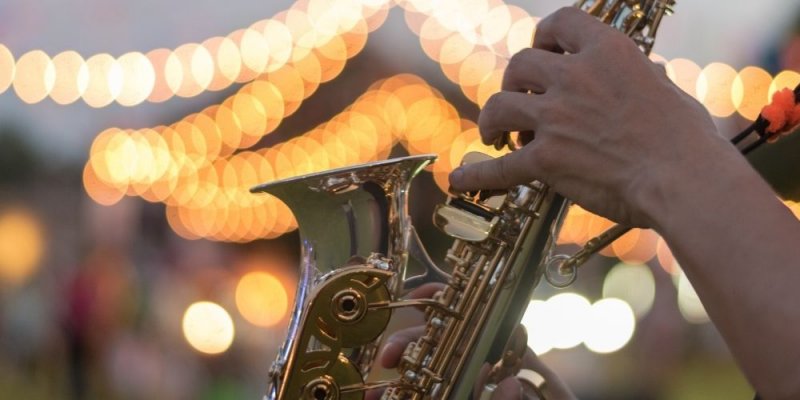Origins
World Music Day was born in the 80s in France. Through a national survey, the French Ministry of Culture brought to light a striking fact: even though over 5 million people (one in two young people) played a musical instrument, only a part of these were involved in musical manifestations. In essence, musical culture was growing in the country yet remained mostly hidden. Thus, Maurice Fleuret (the Director of Music and Dance at the French Ministry of Culture) paved the way for an event that gave space and a new dimension to the language of music: La Fête de la Musique took place on June 21, 1982. With these enthralling premises, the echo of this collective manifestation resounded far away, carried by the power of the sound waves and the universal message of artistic-musical freedom of expression. Indeed, many other European countries began to celebrate this anniversary. Just three years after the celebration of first Festival of Music in France, 1985 was proclamed the European Year of Music (Italian acronym AEM). The European Years were already established in the past and focused, in general, on specific topics to raise awareness of certain issues and encourage debate on them at both the national and European level. In addition, these initiatives made it possible to provide additional funds for local and national projects on the chosen theme.
However, a decade later, the European Charter of the Festival of Music signed by many European cities in the Hungarian capital gave this event a more concrete form. Here are some of the main principles that the so-called Budapest Charter established:
-the commitment of various countries to improve and support national and international knowledge of artistic realities;
-the gratuitousness of the event;
-having June 21 as the official date for the event.
Here is a fun fact: Over the years, the Mint of Rome has issued commemorative coins representing prestigious people, places or events, including the Olympics and the World Cup. In 1985, the AEM earned its 500 Lire coin. So, if you are a collector, you can not miss the 500 lire European Year of Music coin in silver.

The magic of the summer solstice

Why was this date chosen? June 21 marks the summer solstice, which astronomy defines as the day in which the Sun reaches the highest point over the horizon, giving us the maximum number of hours of light in 24h.
Since ancient times, this astronomical event has taken on - according to the different civilizations and places - symbolic and mystical meanings, becoming a special day to celebrate the connection of life with the Sun. Today, every region of the world consider the solstice a significant recurrence, whose symbolism and consequent celebration suit the national traditions. However, whatever the indigenous roots, the solstice festival is for everyone a catharsis, a time to remove worries and remind us that we are alive and in perpetual connection with the whole world. How could the music not be connected to this message? It is precisely the mean through which we can communicate and meet without filters: music is a universal language. So, let us arm ourselves with positive energy and celebrate life through music on the longest night of the year!
Vivo per lei perché mi fa vibrare forte l'anima/ I live for her (the music) because she makes my soul vibrate deeply
Italian music
Andrea Bocelli and Giorgia, two of the most majestic voices on the Italian and international scene, have interpreted the Italian version of this magnificent text celebrating the love for music entitled «Vivo per lei».
How was musical art born in Italy? We need to go far back in time and space to know a story that passes through the popular songs of the city and reaches the prestigious Italian names of classical and modern music. The exceptional singing and composition talents, the fishermen, farmers and laundrettes from all over Italy have made music a real art that has allowed the Italian culture to be among the best known, appreciated and loved in the world.
Halfway between the sacred and the profane, hundreds of Italian talented composers and singers have crossed the ages, embraced literary eras, accompanied artistic compositions of other nature, such as theatre. They worked on the most prestigious stages in the world, carrying a universal message: love for music.
In almost a millennium of history, Italian music has changed shape many times, sometimes inspiring and adapting and sometimes opposing the currents of thought of the moment, becoming an expression of social and political identity. What is more, Italian music created a space and an identity of its own, accompanying the intricate ascent towards the unification of the country and the consequent recognition of Italian as a national language, a concept recognized very late compared to the rest of European countries.
As regards the present day, Italian music continues its metamorphosis path, adapting to the times and developing a unique ability to embrace various targets, stratified according to the most different parameters, from age to magnificent and colourful dialectal forms.
Italian notes and voices travel all over the world and continue to make history. Whether it’s food, sociability or music, Italians turn everything into art to share!
«A country without culture and art is a country that denies itself a real, authentic and, above all, free future» - Tribute to Carla Fracci, recently deceased Italian dancer of international fame.
About the author
Written on 04/06/2021



Sabrina Fabozzi
On the longest night of the year, the streets and squares of worldwide cities celebrate World Music Day with free musical events. The purpose is to underline the universality of music and the importance of making it accessible to all.